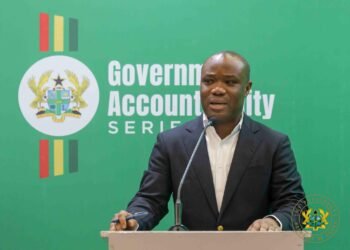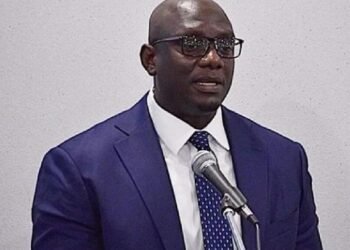Bright Simons, Vice President of IMANI Africa, has lauded Manasseh Azure Awuni’s long campaign to reform sanitation contracting in Ghana, calling it a serious moment of national learning and a potential watershed in Ghana’s approach to governance.
His commentary came after the Office of the President formally announced the expiration and non-renewal of the controversial contract between the Youth Employment Agency (YEA) and Zoomlion Ghana Limited and credited Manasseh Azure Awuni.
“After waging a years-long campaign, formidable Ghanaian investigative journalist, Manasseh Azure Awuni, has succeeded in convincing the new Ghanaian government to subject sanitation contracts to competitive bidding”
Bright Simons, Vice President of IMANI
According to a letter from the Office of the President signed by Callistus Mahama, Ph.D., Secretary to the President, the government will henceforth subject all sanitation contracts to competitive bidding. In what Simons sees as a departure from entrenched patronage models, this move could finally align national procurement with long-standing lessons in policy reform.
“This is a VERY SERIOUS sign that governance activists could get results from the new government if they stay the course in various campaigns,” Simons declared.
In a direct response to a petition filed by Manasseh Azure Awuni in April 2025, the Office of the President stated: “The contract between Youth Employment Agency (YEA) and Zoomlion Ghana Limited has expired and will not be renewed.”
The letter further noted that any payments made to Zoomlion after the expiration of the contract would be audited, with unauthorised payments recovered. More importantly, it announced a shift in policy direction.

“Rather than one national contract, there should be regional or district-based tenders for private firms. This could reduce costs through competitive pricing and stimulate innovation, as companies compete on service quality to secure contracts”
Office Of The President
The government, now under President John Dramani Mahama, also signaled a review of fumigation contracts, a potential increment in sweeper wages, and a focus on localised innovation in service delivery. The shift away from a single, centralised contractor model was interpreted by Simons as an opening for robust policy experimentation.
Reflecting on the development, Simons framed the moment as a test of the country’s capacity for institutional learning. “National learning is how a country improves on how it solves the problems that matter to citizens over time.”
He stressed that while politics identifies national problems and gathers citizen attention, it is the policy space that designs and refines solutions. Crucially, he added, policy accountability can only exist when “a vibrant subset of the population can track and scrutinise government policies and if their feedback matters in the political process.”
Without this dynamic, Simons warned, countries fall into what he described as ‘Katanomics,’ where problems simply recycle themselves without structural solutions.
Drawing on Ghana’s own policy history in sanitation, Simons noted that open bidding in the sector traces back to the late President John Evans Atta Mills’ administration, which pioneered zoning cities and regions to dilute Zoomlion’s dominance.
“The goal then was to weaken the Zoomlion monopoly. Has that strategy worked? Why or why not?” Simons pointed out that cities like Kumasi have maintained stricter open bidding protocols but also revealed challenges with zoning.

Keeping the zones too small, he said, has often made it difficult for contractors to raise funds for the expensive equipment needed. In such cases, many smaller firms either collapsed or became conduits for larger, well-connected companies like Zoomlion. “If these learnings are not properly absorbed, competitive bidding fails to add serious value,” he added.
Simons explained that contractors, especially in Accra, had gone bankrupt under the so-called “bid for zone” model, allowing Zoomlion to re-emerge through proxy arrangements. For Simons, the key challenge now is to ensure that this new wave of competition embeds institutional memory and avoids past missteps.
The President’s directive also stated that “a cabinet subcommittee will develop the modalities for implementing this.”
Simons concluded that while the policy shift represents a bold start, meaningful reform will require more than cabinet memos. It will depend on whether stakeholders, including journalists, civil society, and policy thinkers, can sustain oversight and ensure implementation reflects lived experience and past experimentation.
In his words, this move “will only make a difference if longstanding national lessons and experiences are incorporated into the design of the new approach.”
Azure’s dogged pursuit of public accountability has now earned a measurable policy result. Whether this breakthrough will mark the beginning of a sustained governance shift remains a question not for presidential letters alone, but for the nation’s ability to retain and act on its own hard-won lessons.
READ MORE: Juliet Ibrahim Reacts to NCA Radio Shutdowns























